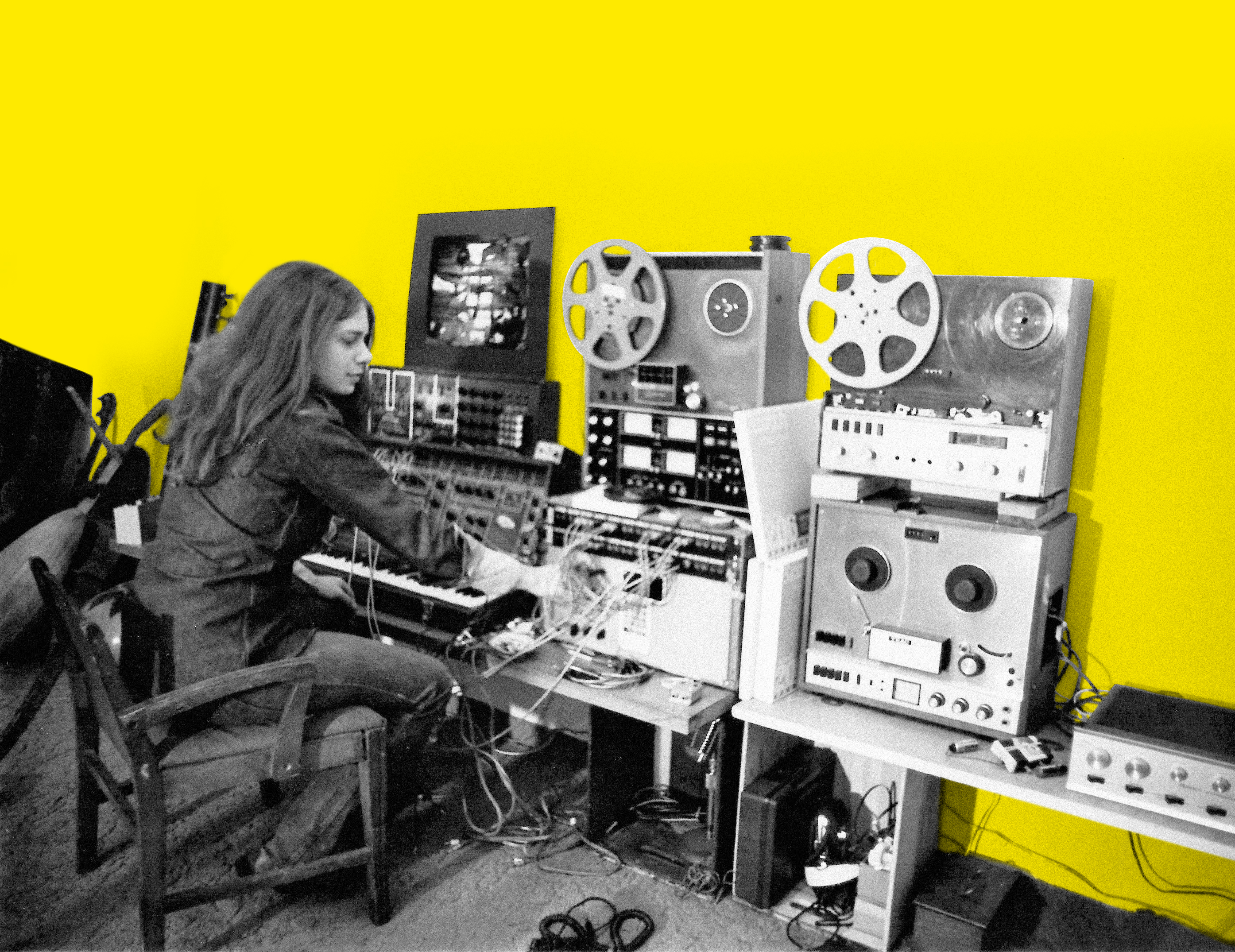Earlier this month, music editor Kieran Blyth checked out the Synth Remix Tour as it stopped off at Belgrave Music Hall. What followed was a night of electronic music history in the making.
The Synth Remix tour is a celebration of the pioneering women of electronic music throughout the 1960s and 70s. Drawing upon the work of female electronic composers, particularly Daphne Oram and Delia Derbyshire of the BBC Radiophonic Workshop, the event reflects on the innovation of these women and their impact on electronic music as we know it today. As Belgrave Music Hall is laid out with an arrangement of sofas, the night feels more like one of its regular film screenings, suggesting that we are to witness the capturing of a moment within history. Yet, with live sets from Jo Thomas and Olivia Louvel, the historical developments of Oram and Derbyshire are extrapolated into the sounds and technologies of current female electronic artists.
“Synth Remix is not simply a reflection on or a rewriting of a history of musical evolution. Instead, the event is an ongoing development that is still being written”
The opening performance by Jo Thomas is one of meditative absorption. Having delved into the Delia Derbyshire archives at the University of Manchester, Thomas set herself the arduous task of intensively listening to the recorded sounds for four days in full. Out of this, she picked out snippets of sound material, which she would later develop into her own musical work over the coming six months. The result is an ambient soundscape which occasionally plunges into heavy bass beats, shifting between stasis and motion.
Thomas’s set also highlights the technological innovation of Daphne Oram through the reproduction of the Mini-Oramics synthesiser – the only one of its kind. Developed from Oram’s original design, the machine was brought back to life by Goldsmith’s PhD student, Tom Richards. By drawing shapes directly onto a 35mm film strip, the synthesiser reads these drawings through photo-electric cells and translates them into sound via a sampler. For instance, drawn curved lines may create curved pitch-shifts, filter-sweeps and so on. As if this technological development was not enough, Thomas has also designed her own MILK synthesiser. Having been designed over a two-year period, MILK is a sensor-based device that allows electronic manipulation through bodily motion. With both of these developments, Thomas brings a great sense of physical and human material into her music.
The headline set comes from Olivia Louvel, in the shape of a live audio-visual performance of her work Data Regina. Being a member of the artistic collective, female:pressure, an international group of female, transgender and non-binary artists within electronic music, Louvel’s music centres itself around creative women and female iconography. Data Regina focuses on the writings of Mary Queen of Scots, detailing her conflict with Queen Elizabeth I and her position within an overwhelmingly male-dominated society.
“The effect is thus a radical transformation of the voice into a sound that is far-removed from its original material, successful in creating an incredibly menacing and penetrative force”
Louvel’s performance dives straight into sequences of scratchy and hazy percussion sounds. Above this, she builds layers of sinister and intense vocals, exacerbated by the creepy visuals which evolve on the screen behind her, as fashion magazine cut-outs help to create an army of blank-faced queen duplicates. Yet these beautiful vocal loops are not what you might expect from the most natural of instruments; with KAOSS and Akai LPD8 pads at her disposal, Louvel can fragment her voice into numerous different and unique sounds, flowing through glitchy noise and atmospheric sweeps. The effect is thus a radical transformation of the voice into a sound that is far-removed from its original material, successful in creating an incredibly menacing and penetrative force.
Interweaving through ‘Farewell’ and ‘Ancrum Moor 1545’, the room is infiltrated by the compelling impetus of bass swells and punches, empowering enough to replace the beating of my own heart and pump the blood through my veins for me. But this is only a taster of what is to come; as ‘Battlefront’ draws a close to the performance with pulsating bass beats panning heavily across the stereo field, the vibrations of the entire room are sensations which I have not experienced before. “That was loud”, Louvel whispers to herself upon finishing, drawing out great humour from understatement.
At this point, it becomes strikingly apparent that Synth Remix is not simply a reflection on or a rewriting of a history of musical evolution. Instead, the event is an ongoing development that is still being written, and one that has the names Jo Thomas and Olivia Louvel at its forefront.
Kieran Blyth
Header image via Synth Remix

